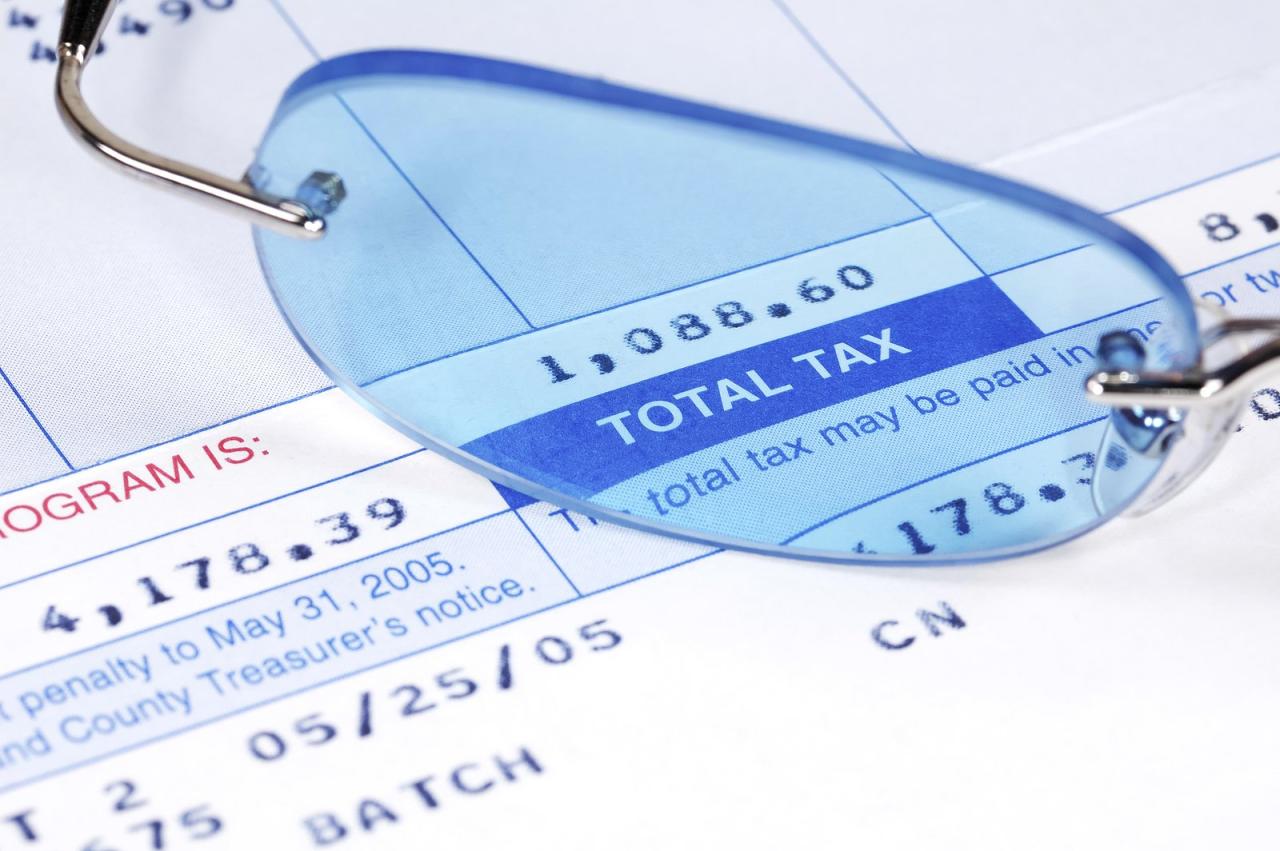Embark on a comprehensive journey through the intricate world of Fulton County property tax appeals. Dive into the nuances of the process, explore the grounds for challenging assessments, and discover the strategies for a successful appeal.
Whether you’re a seasoned homeowner or a first-time appellant, this guide will empower you with the knowledge and confidence to navigate the property tax landscape and potentially reduce your tax burden.
Fulton County Property Tax Appeal Process

Appealing a property tax assessment in Fulton County involves a specific process with established steps and requirements. Understanding the process and adhering to the timeline can increase the likelihood of a successful appeal.
The appeal process typically begins with an informal review, followed by a formal hearing if necessary. The timeline for the appeal process varies depending on the specific circumstances, but it generally takes several months to complete.
Forms and Documents Required
To initiate an appeal, you will need to submit the following forms and documents:
- Notice of Appeal (Form 50-202)
- Property Tax Return (Form 50-100)
- Evidence supporting your appeal, such as appraisals, comparable sales data, or income and expense statements
Grounds for Appeal
Property tax assessments are often based on a variety of factors, including the size, location, and condition of your property. If you believe that your assessment is inaccurate, you may be able to appeal it. There are several common grounds for appealing a property tax assessment, including:
- Assessment is not uniform.Your property should be assessed at the same rate as similar properties in your area. If you believe that your assessment is not uniform, you can appeal it.
- Assessment is excessive.Your assessment should be based on the fair market value of your property. If you believe that your assessment is excessive, you can appeal it.
- Assessment is discriminatory.Your assessment should not be based on your race, religion, or other protected characteristics. If you believe that your assessment is discriminatory, you can appeal it.
Determining if You Have a Valid Basis for an Appeal
Before you appeal your property tax assessment, you should determine if you have a valid basis for doing so. You can do this by:
- Comparing your assessment to the assessments of similar properties in your area.If your assessment is significantly higher than the assessments of similar properties, you may have a valid basis for an appeal.
- Getting an appraisal of your property.An appraisal can help you determine the fair market value of your property. If the appraisal value is significantly lower than your assessment, you may have a valid basis for an appeal.
Examples of Successful Appeals Based on Different Grounds
There are many examples of successful appeals based on different grounds. For example, in one case, a homeowner was able to successfully appeal their assessment by proving that it was not uniform. The homeowner showed that their property was assessed at a higher rate than similar properties in their area.
In another case, a homeowner was able to successfully appeal their assessment by proving that it was excessive. The homeowner showed that the appraisal value of their property was significantly lower than their assessment.If you believe that your property tax assessment is inaccurate, you should appeal it.
There are several common grounds for appealing a property tax assessment, and you may be able to get your assessment reduced if you have a valid basis for doing so.
Evidence and Documentation
Gathering and presenting solid evidence is crucial for a successful property tax appeal. This section will guide you through the types of evidence you can use, how to gather and organize them, and tips for presenting them effectively.
Types of Evidence
- Comparable sales data:Recent sales prices of similar properties in your neighborhood can demonstrate that your property is overassessed.
- Appraisal reports:A professional appraisal by a licensed appraiser can provide an independent assessment of your property’s value.
- Property inspection reports:These reports document any physical characteristics of your property that may affect its value, such as structural damage or renovations.
- Market analysis:A study of the local real estate market can show trends that support your claim of overassessment.
- Income and expense statements:For income-producing properties, financial statements can demonstrate that the property is not generating enough income to justify its assessed value.
Gathering and Organizing Evidence, Fulton county property tax appeal
Start by gathering all relevant documents, including your property tax bill, assessment notice, and any previous appeals. Organize your evidence into categories and create a clear and concise summary of your findings.
Presenting Evidence Effectively
When presenting your evidence, focus on providing clear and compelling documentation that supports your claim. Use exhibits to organize your evidence and make it easy for the appeals board to understand. Be prepared to explain your evidence and how it supports your appeal.
Appeal Hearing

The appeal hearing is the opportunity for you to present your case to the hearing officer. The hearing officer is an impartial third party who will make a decision on your appeal.
The hearing will be held at a time and place that is convenient for both you and the hearing officer. You will receive a notice of hearing in the mail that will provide you with the date, time, and location of the hearing.
Preparing for the Hearing
To prepare for the hearing, you should gather all of the evidence and documentation that you will need to support your case. This may include:
- A copy of your property tax bill
- A copy of your deed or other proof of ownership
- Comparable sales data for similar properties in your neighborhood
- An appraisal of your property
- Photographs of your property
You should also prepare a statement that explains why you believe your property is overvalued. In your statement, you should be specific about the facts that you are relying on to support your case.
Presenting Your Case at the Hearing
At the hearing, you will have the opportunity to present your case to the hearing officer. You should be prepared to answer questions from the hearing officer and from the county attorney.
Here are some tips for presenting your case at the hearing:
- Be clear and concise in your presentation.
- Be respectful of the hearing officer and the county attorney.
- Be prepared to answer questions.
- Be confident in your case.
The hearing officer will make a decision on your appeal based on the evidence and arguments that you present. The hearing officer’s decision is final.
Alternative Dispute Resolution

Fulton County offers alternative dispute resolution (ADR) options to resolve property tax appeals outside of a formal hearing. These options include mediation and arbitration.ADR can provide a more flexible and less adversarial approach to resolving disputes, potentially saving time and resources.
However, it’s important to understand the advantages and disadvantages of each method to determine the most appropriate option for your situation.
Mediation
Mediation involves a neutral third party, known as a mediator, who facilitates a discussion between the taxpayer and the county assessor. The mediator does not make a decision but rather helps the parties reach a mutually acceptable resolution. Advantages of Mediation:
- Informal and less adversarial
- Can help preserve relationships
- May be less expensive than other ADR methods
Disadvantages of Mediation:
- May not result in a binding decision
- Can be time-consuming if parties cannot reach an agreement
Arbitration
Arbitration involves a neutral third party, known as an arbitrator, who hears evidence from both parties and makes a binding decision. The arbitrator’s decision is final and cannot be appealed to the Property Tax Board of Equalization. Advantages of Arbitration:
- Binding decision
- May be faster than a formal hearing
- Can be less expensive than a trial
Disadvantages of Arbitration:
- More formal and adversarial than mediation
- May not provide the same level of due process as a formal hearing
Choosing the Appropriate ADR Method
The best ADR method for your situation depends on your specific circumstances. Consider the following factors:
- The complexity of the dispute
- Your desired level of formality
- The importance of a binding decision
- The cost of each method
If you are considering ADR, it’s recommended to consult with an attorney or property tax consultant to discuss your options and make an informed decision.
Professional Assistance
Navigating property tax appeals can be complex. Seeking professional assistance from qualified individuals can significantly enhance your chances of success.
Several types of professionals offer services for property tax appeals, including attorneys and appraisers.
Attorneys
- Specialize in tax law and property assessment
- Provide legal advice and representation during the appeal process
- Can file appeals, negotiate with the county, and represent you in court
Appraisers
- Certified or licensed professionals who assess property values
- Provide independent appraisals that can support your appeal
- Can identify errors in the county’s assessment and provide expert testimony
Hiring a professional can offer benefits such as:
- Expertise in property tax law and valuation
- Objectivity and professional credibility
- Increased likelihood of a successful appeal
However, professional assistance comes with costs. Fees can vary depending on the professional’s experience, reputation, and the complexity of your case.
To choose a qualified professional, consider:
- Experience in property tax appeals
- Professional certifications or licenses
- Reputation and references
Resources and Contact Information
Navigating property tax appeals in Fulton County can be a complex process. To help you succeed, various resources and contact information are available.
The following resources provide valuable information and guidance throughout the appeal process:
County Assessor’s Office
- Phone:(404) 612-6400
- Website: https://fultonassessor.org/
- Address:136 Pryor Street SW, Atlanta, GA 30303
Online Resources and Forms
- Property Tax Appeal Application: https://fultonassessor.org/resources/appeals/
- Property Tax Appeal Guide: https://fultonassessor.org/wp-content/uploads/2023/01/2023-Property-Tax-Appeal-Guide.pdf
- Frequently Asked Questions: https://fultonassessor.org/faq/
Professional Assistance
If you require professional assistance with your property tax appeal, consider contacting:
- Property Tax Consultants:These professionals specialize in property tax appeals and can provide expert guidance and representation.
- Attorneys:Attorneys with experience in property tax law can assist with legal matters related to your appeal.
FAQ: Fulton County Property Tax Appeal
Can I appeal my property tax assessment if I disagree with the market value?
Yes, you can appeal your assessment if you believe the market value assigned to your property is inaccurate. You will need to provide evidence to support your claim, such as a recent appraisal or comparable sales data.
What is the deadline for filing an appeal?
The deadline for filing an appeal varies depending on the county. In Fulton County, the deadline is typically 45 days after the assessment notice is mailed.
What are the common grounds for appealing a property tax assessment?
Common grounds for appeal include incorrect property characteristics, errors in calculating the market value, and changes in the property’s condition or use.